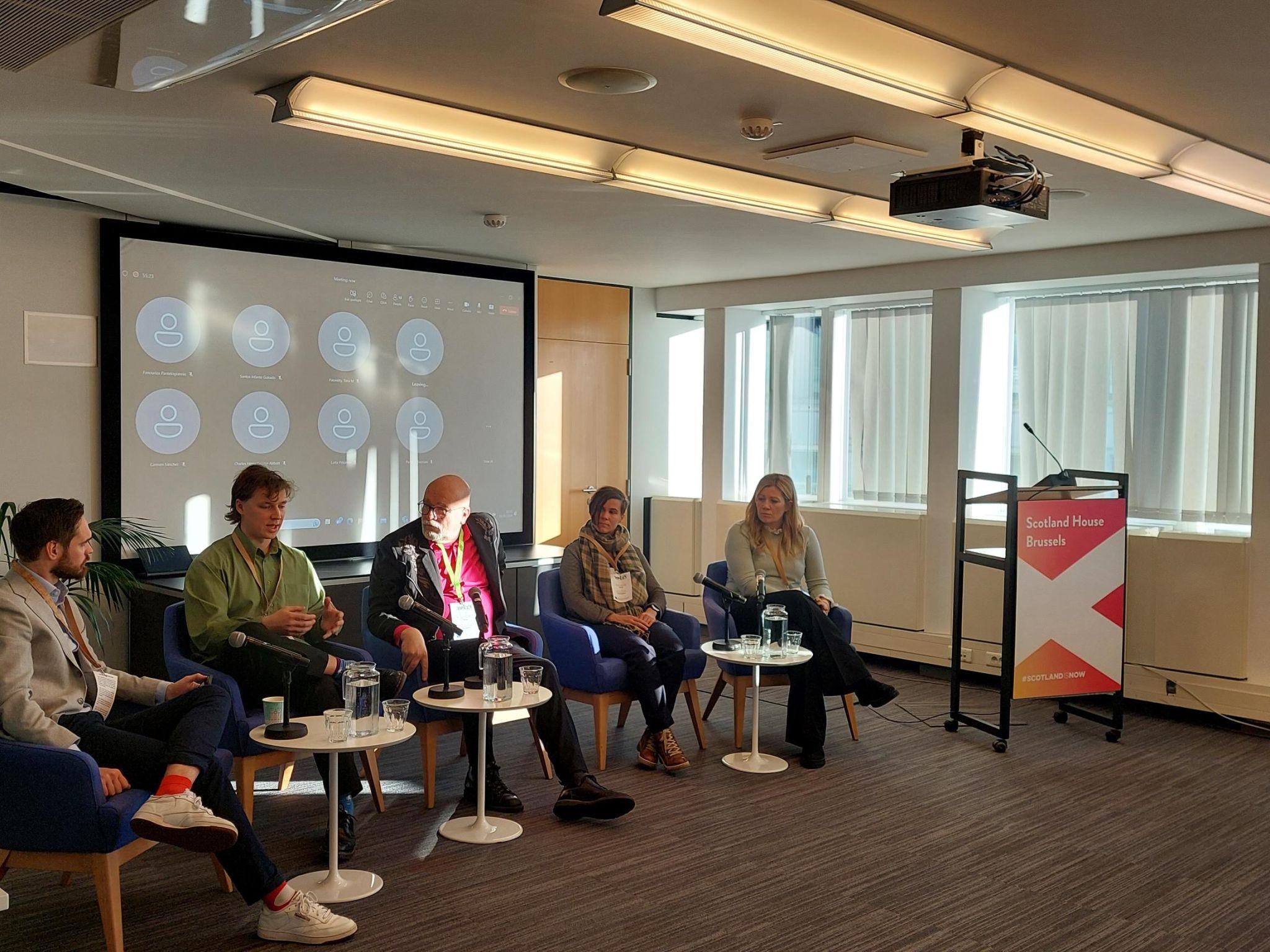
RIPEET boosts co-creation for energy transition in EU regions
On 17 and 18 January 2024, ERRIN held an event focusing on stakeholder engagement methodologies in energy transition as part of its project, RIPEET. The event gathered local and regional authorities, co-creation experts, European Commission representatives and researchers to discuss the critical role of stakeholder engagement in energy transition.
On the first day, The RIPEET Lab explored concrete learnings from the project implementation in the three Pilot territories, promoting the replication of the methodology across different contexts and sectors. This was further supported through a project development session open to ERRIN members and RIPEET partners. The future collaboration opportunities session focused on stakeholder engagement across different sectors and looking into project opportunities on specific HORIZON Europe calls, with deadlines in mid-2024 and early 2025. ERRIN members had the chance to discuss and develop new projects, building on RIPEET learnings and best practices.
The next day, the conference Learn. Exchange. Connect - Co-creating responsible energy transitions presented the experience of RIPEET stakeholders directly involved in the Transition Labs co-creation process and the impact of such an approach, reflecting on the past, present and future of co-creation methodologies and policies. Experts such as Hortense Lutz-Hermellin, Delegate from the Auvergne Rhône Alpes region, Johanna Dahl, from the Regional Council of Ostrobothnia and Eero Ailio, Policy Adviser on Energy Transition and Local Governance at the European Commission DG Energy were featured, driving the discussions.
From the MOSAIC project to the work on EU missions, ERRIN has been developing and strengthening its experience with co-creation methodologies and multi-stakeholders dialogues, emphasising the importance of citizen engagement and open transformations for inclusive and more sustainable societies across different sectors.
The key messages and takeaways from the event were:
- Making unheard voices heard – Collaboration with a wide variety of local stakeholders is crucial to ensure legitimacy in implementing key policies related to energy transition.
- Solutions from Community for the Community – Small-scale cascade and the selection of local solution providers spark community-based social innovations that tackle the needs identified in each territory. This local approach is vital for developing a long-term approach to energy transition, connecting local actors and leveraging their skills.
- Building up capacities for transformation – The RIPEET Transition Lab process and inclusive approach are valuable tools for engaging new actors and leveraging their skills to drive energy transition forward. It helps to build up organisational competence, which helps facilitate transitions and their acceptance by societal actors.
In addition to the RIPEET project, ERRIN and its members continue to contribute to the implementation of energy transition, including having actively contributed to the development of Hydrogen Valleys and providing feedback and input for the European roadmap on the subject. Acknowledging the importance of Hydrogen Valleys as place-based innovation ecosystems, ERRIN emphasises the role of local and regional governments in reinforcing the research and innovation agenda for clean hydrogen. You can read more about the work conducted on this dedicated webpage.
What is RIPEET?
The RIPEET project supports local and regional authorities' commitment to energy transition. With a dedicated methodology, the Transition Lab, the project aimed at fostering a collaborative ecosystem approach, mobilising local stakeholders from academia, civil society, energy providers, the private sector and public administration. Over the past 3 years, the project partners, pilots and mirrors worked together to identify the vision for energy transition. They discussed territories' most pressing energy-related needs and the energy transition policies needed to address them. This approach was implemented and tested in the three pilot territories, which were all ERRIN members: the Outer Hebrides (UK), Ostrobothnia (FI) and Extremadura (ES).
In this project, ERRIN's role was to create a Community of Practice of six additional "mirror ecosystems" in Andalucia (ES), Lithuania, The Aran Islands, Galway (IE), La Réunion (FR), Eigersund (NO) and Silesia (PL). ERRIN was also in charge of the overall communication, dissemination and exploitation activities of the RIPEET project, where the replicability and effectiveness of RIPEET’s approach and related methodology were supported, promoting its exploitation potential for our members.
- Rodolphe Doité
- 23/01/2024
-
Working Group